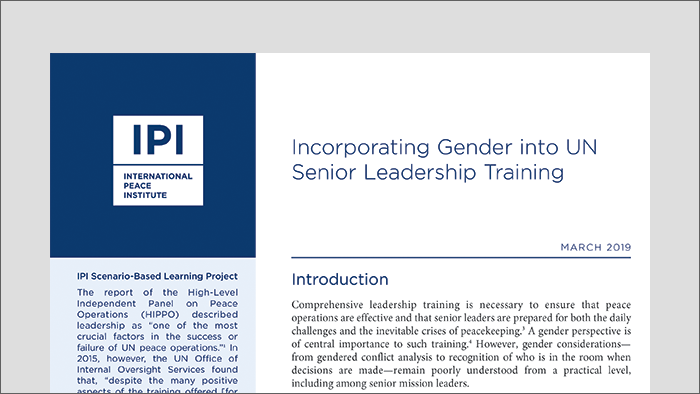
Comprehensive leadership training is necessary to ensure that peace operations are effective and that senior leaders are prepared for both the daily challenges and the inevitable crises of peacekeeping. A gender perspective is of central importance to such training. However, gender considerations—from gendered conflict analysis to recognition of who is in the room when decisions are made—remain poorly understood at a practical level, including among senior mission leaders.
This issue brief discusses what it means to apply a “gender perspective” and the importance of such a perspective for senior leaders to effectively implement mission mandates. It provides an overview of existing gender-related training and preparation techniques for senior leaders, including gaps. It concludes with a series of recommendations on how trainings and approaches to senior leadership training can better reflect these considerations:
- The current status of gender training for senior leaders should be assessed.
- Facilitators of trainings should ensure that their curricula address and respond to a peacekeeping workspace dominated by men.
- Facilitators should be aware that leaders often think they do not need training.
- Trainings for senior leaders should be designed to reflect the complexity of implementing women, peace, and security obligations in a mission.
- Efforts to ensure gender parity in senior mission leadership should be strengthened.
- Gender advisers should be included as formal members of a mission’s crisis management team and play an active role in decision-making bodies.
- Facilitators should understand the gender dimensions of a given training scenario and be aware of the gender balance among participants.
- The UN should develop resources for leaders, including key documents and guidance on understanding the gender dimensions of their mission.







